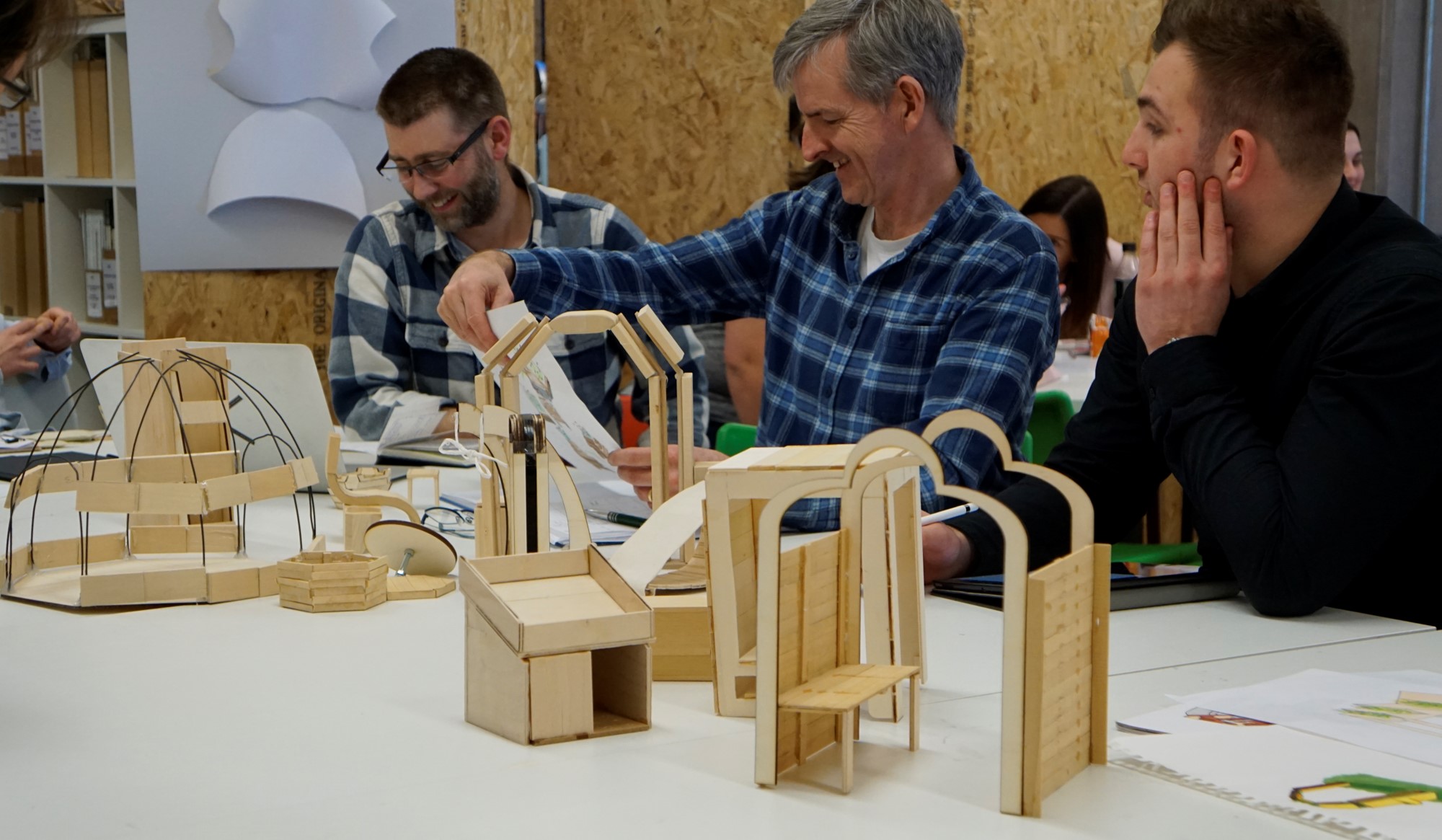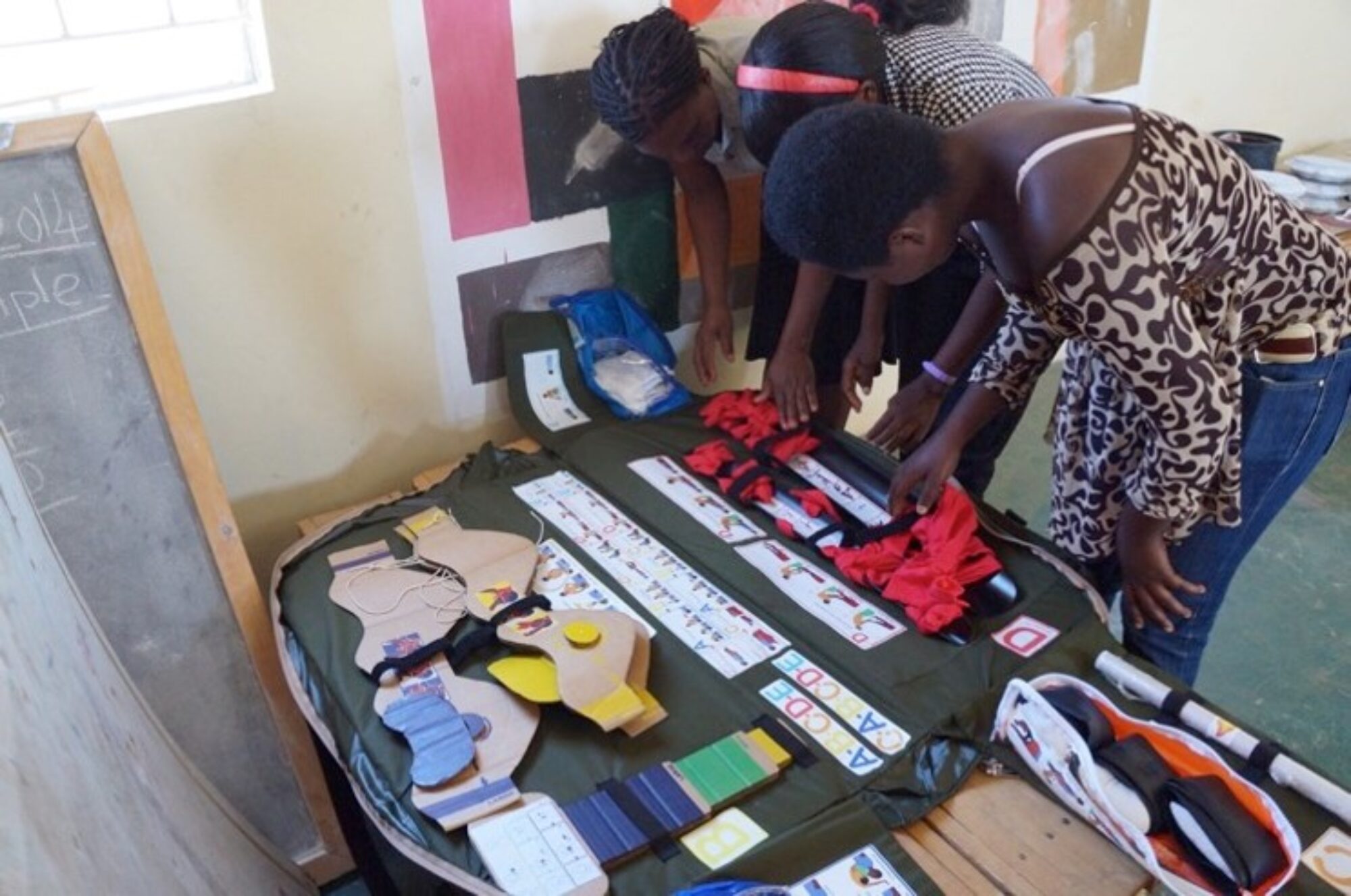 Clwstwr Creadigol
Clwstwr Creadigol
This AHRC funded project called Clwstwr Creadigol aims to put innovation at the core of media production in South Wales. The academic team is a collaboration between Cardiff University, the University of South Wales and Cardiff Metropolitan University. You can see more details on the project at www.clwstwr.org.uk
 Trauma Pack
Trauma Pack
Dr Clara Watkins, Professor Steve Gill, Professor Gareth Loudon (Cardiff School of Art & Design) and Professor Judith Hall (Cardiff Medical School) used participatory ethnographic approaches and medical expertise to develop an ultra-low-cost Trauma Pack for rural Zambia. Costing ~£480 less than existing packs, it uses hand-waxed and sealed cardboard neck-braces, drainpipe-based splints, and bicycle inner tubes for pressure bandages. It is manufacturable locally, and usable by untrained, illiterate members of the Zambian public by employing culturally-tuned graphic instructions that walk users through the global standard ABCDE care sequence. Read more…
 Improving Healthcare Support for Rural Communities in India
Improving Healthcare Support for Rural Communities in India
The aim of this AHRC project, led by Professor Gareth Loudon, was to help improve the health and well-being of people living in rural communities in India through the establishment of a multidisciplinary international collaboration and the application of user-led design research methods such as ‘design thinking’. You can see more details on the project at www.indiaruralhealthcareproject.org
 Puffin Produce
Puffin Produce
The research team, led by Dr Abbie Lawrence, helped evaluate Puffin’s new design of their potato packaging using the research groups Perceptual Experience Laboratory (PEL). Abbie designed an appropriate experimental protocol, created visual stimuli to place into a virtual supermarket fresh produce aisle and recruited participants from Puffin’s target consumer demographic. You can see more details at Puffin Produce Study.
 P&A Fencing and Sheds
P&A Fencing and Sheds
This Innovate UK funded Knowledge Transfer Partnership, led by Gareth Barham, focuses on embedding professional activities of Market Research; User Centred Design (UCD) and Design For Manufacture and Assembly (DFMA) inside P&A to help in the design of new self-build garden products.
 Phytoponics
Phytoponics
Phytoponics is a Welsh start-up that has developed a large scale growing system for fresh produce such as Tomato and Strawberry. Using a way of growing plants in water called hydroponics, their system can finely control plant growth to ensure maximum yield returns and nutritious produce to sell. This Welsh Government funded SMART Partnership project helped develop the Phytoponics system further through the application of UCD techniques to optimise the inflatable growth module design for better user interaction, performance, durability and cost.
 Viola Group
Viola Group
This was a Welsh Government funded SMART Partnership project with the Viola Group (a global money management organisation, headquartered in Wales) looking at the design of new disruptive finance products specifically designed for 18 – 25 year olds. The project focused on embedding user-centred design expertise within Viola and applying the techniques to the development of a range of new financial technology products.
 In-context testing
In-context testing
Low-fidelity prototyping techniques for interactive products have largely been evaluated in laboratory based settings. Is this the only method of testing that should be supported? This work argues that there is value in testing prototypes in-context, and that issues not seen in the laboratory can be uncovered. Read more…

IRIS prototyping tool
Iris is part of an attempt to develop a tangible prototyping system so fast and flexible that it would allow designers to develop new interaction paradigms for technologies that don’t even exist as yet. Read more…
 “IE System” prototyping tools
“IE System” prototyping tools
The IE system prototyping tools provide a rapid and flexible interactive prototyping solution. The tools are designed to support product designers, and allow prototyping of interactive products without the need for advanced coding or electronic design skills. Read more…
 StickIT
StickIT
Designers still face a number of challenges when trying to rapidly prototype early stage interactive concepts. This work aims to allow designers to create flexible interactive prototypes within 1-2 hours and complement the ways in which designers work. Read more…
